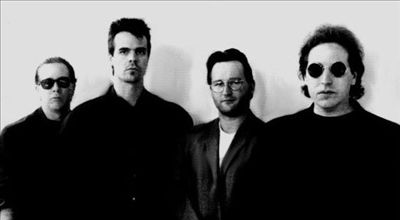 Last December, a woman at church used Jedi mind tricks, or something very much like them, to persuade me to participate in our house of worship’s Christmas play.
Last December, a woman at church used Jedi mind tricks, or something very much like them, to persuade me to participate in our house of worship’s Christmas play.
“Okay, I can do that,” I said, the words leaping from my lips without my consent.
“I can’t act,” I added quickly, hoping she would set me free and turn her powers upon someone else. “I can’t even act like I can act.”
The following week, when she handed me a script as thick as a phonebook, I begrudgingly accepted my fate: I would play a servant at the final inn Mary and Joseph would visit in their search for lodging. With eyes as big as milk saucers, I would point at the star in the sky, which was hovering above the stable out back, and shout, “It’s huge!”
I lamented my lack of backbone for at least a week after agreeing to appear in this play. When I found out my friend Tim had been enlisted to direct it, however, I felt less alone. Like me, he had probably been bamboozled into accepting his role, as he is hardly the sort to direct—let alone attend—a church play.
The sole bohemian fifty-something who attends my church, Tim is a jazz-loving, Zappa-worshipping, cigar-smoking, beer-swilling, swearing scoundrel who reminds me of Han Solo, but with less hair than Harrison Ford. His glasses sit atop his shaved scalp as if he doesn’t actually need them to see, which kind of kills me. Best of all though, Tim does not suffer fools, even though he kind of is one (and even though he suffers me just fine).
What I like best about Tim, though, is his gift for afflicting the comfortable. Churchgoers tend to be a pretty comfortable lot, too. We do not like to be afflicted. Even the slightest change threatens to undo us. We are deathly afraid of new hymns, for example, and prefer to sing songs that predate the invention of the cotton gin.
Tim, however, bristles at such stuff. Comfort makes him uncomfortable.
I like to think of him as the anointed fly in my church’s ointment. When someone reaches for a bite of pie-in-the-sky-when-we-die, he smacks the fork out of the poor person’s hand. “It’s great to talk about eternal life and all,” he says, “but how does that help those who are suffering in the aftermath of the typhoon in the Philippines? I mean, really—how?” Tim cannot stomach a neat and tidy faith that exists apart from the human mess, and rightly so.
In summarizing his own messy existence, Tim might point out that is he is divorced, unemployed, and buried under an avalanche of what-might-have-beens. But he owns his woes with dignified resignation, and thereby manages to make his endless downward spiral seem like a graceful enough aerial maneuver.
Why anyone asked Tim to direct the play, I have no idea. But thank God they did! It’s not that he turned out to be the next Stanislavski or anything—no, no. I just found myself enjoying the play because of his involvement, and despite my apprehensions about acting.
He brought his brusque approach to directing, of course. He bellowed at us, gestured as if we might actually understand his strange version of semaphore, and treated us like the third-rate thespians we were.
Most memorably though, at the beginning of each rehearsal, his glasses sat on the bridge of nose instead of atop his head. With each successive disappointment during practice, they slid down his nose, lower and lower, until they rested on the tip of his snout so he could stare down at his script—and then at us—with disapproving eyes.
Did I mention we only had one month to practice this godforsaken play about God not forsaking the Earth before performing it for a full house?
In retrospect, this probably accounted for the desperation in Tim’s direction. He carped on and on about what to say, how to say it, and—on more than one occasion—where we could shove it. To the casual observer, he might have looked as though he were on the verge of a heart attack—his face red, his nostrils flaring like bell-bottoms, his stress levels obviously elevated.
In the end, the play proved tolerable—some would even say enjoyable—for attendees. Though there was more Oscar Mayer than just plain Oscar in my hammy performance, I survived, too. Tim almost did not, however—six months later, he suffered a very real heart attack.
He has since recovered, and remains as salty and unsavory as ever. In his most recent Sunday school teaching adventure, he subjected his adult classmates to the works of Anne Lamott and Plato together, as if the two of them were best pals.
Had Tim’s heart attack killed him last June, our church would be without one of its most colorful characters. When it comes to the Apostle Paul’s analogy of the church as the body of Christ, in fact, I tend to think of Tim as the liver—producer of bile, and the part I think of when I read of Jesus criticizing the religious establishment. Perhaps Tim’s heart attack didn’t kill him because his liver keeps him going more than his heart does.
Who better to usher in the true spirit of Christmas then, than one whose own rawness rivals that of Christ’s coming into this world? Like Jesus, who entered the world covered in blood and vernix, smelling straw and manure from his manger, Tim lives with an acute awareness of life’s unpleasantries. That being said, I suppose he afflicts the comfortable not because he enjoys it—although I know he does—but inadvertently. People as thorny as Tim rarely shake hands with others without pricking them once in awhile.
Being friends with Tim, I sometimes feel like a prima ballerina, as he always keeps me on my toes. I suppose that’s how people felt around Jesus, too. The church needs more people like Tim, if you ask me—people who are unafraid to speak inconvenient truths that attack hearts and minds, opening them to transformation by the great Comforter.
Chad Thomas Johnston is a slayer of word dragons who resides in Lawrence, Kansas, with his wife Rebekah, their daughter Evangeline, and five felines. He is a regular contributor to IMAGE Journal’s “Good Letters” blog at Patheos.com. His writings have also appeared in The Baylor Lariat and at CollapseBoard.com, home to ex-Melody Maker critic/Nirvana-biographer Everett True. In May of 2013, eLectio Publishing released Johnston’s writing debut, a whimsical memoir titled Nightmarriage.











